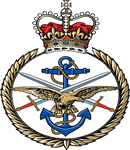Commemorated: | |||
| 1. Memorial: | Basra Memorial | Panel 47 and 66. Basra | |
| 2. Book: | The (1921) Masonic Roll of Honour 1914-1918 | Pg.135 | |
| 3. Memorial: | The (1940) Scroll - WW1 Roll of Honour | 21B GQS | |
Awards & Titles: | |||
Family :
Born 11 Apr 1863 in Simla, Bengal, India. Son of Major-General Hamilton Smithett, Royal Artillery and Mary Anna (Stallard) Smithett. Husband of Josephine Mary (Tyler) Smithett — married 29 Sep 1895 in St. John's Church, Toorak, Victoria, Australia. Father of William Hamilton Smithett, b. 17 Jul 1898, d. 9 Jan 1948, m. 18 May 1939, Eleanora Mary Hutton, daughter of Maurice Charles Graham Hutton & Camilla Charlotte (Tyler) HuttonService Life:
Campaigns:
- The First World War 1914-1918, World-wide.
| Unit / Ship / Est.: 76th Punjabis |
| Action : Mesopotamia |
At the outbreak of war the British, together with Indian troops, resolved to protect oil supply in the region by occupying the area around Basra at Abadan. This evolved into a series of campaigns towards Baghdad against the Turkish forces as Mesopotamia (modern Iraq) was part of the Ottoman Empire. Meetings in late 1914 and into 1915 led the Viceroy and Indian government at Simla to reconsider the limited involvement of troops and they decided to order further advances with a view to securing the Shatt-al-Hai, a canal connecting the Tigris and Euphrates river and potentially capturing Baghdad. The British government disagreed and wished to conserve forces for the Western front. The Viceroy was given permission to act as it wished, but told in no uncertain terms that no reinforcements should be expected.
The initial success experienced by the British and Indian forces quickly disintegrated in the face of Ottoman opposition. The Siege of Kut-Al-Amara began on 7th December with the besieging of an 8,000 strong British-Indian garrison in the town of Kut, 100 miles south of Baghdad, by the Ottoman Army. These campaigns produced few tactical benefits, indeed the catastrophic defeat at Kut in 1916 was a major setback. Badhdad was eventually taken in March 1917.
The conditions in Mesopotamia were dreadful. The climate, sickness and disease produced large losses in addition to battle casualties. About as many men died of disease as were killed in action. The Mesopotamia front was part of a strategy hoping for success at lower cost than the Western Front but no decisive victory was achieved.
He was appointed 2nd in command of the 76th Punjabis in 1907 and became Commandant of the regiment in 1912.
Detail :
Died of wounds in 1915 whilst commanding the 76th Punjabis in Mesopotamia on 24 November 1915, and is commemorated on the Basra Memorial.
The entry in the diary for the 24th November, 1915:
"At Ctesiphon British consolidated; Turks fell back on second position. More Turkish reinforcements arrive. By this morning the 6th (Poona) Division has lost more than half its strength, which at only 8,500 men is well under establishment before the battle began. Townshend realizing that the situation is now hopeless orders a withdrawal and the retreat is followed by the Turks and an epic retreat back to the defences of Kut-el-Amara is begun. Lieutenant Colonel Arthur Cecil Hamilton Smithett (commanding 76th Punjabis) dies of wounds at age 52. He served in Hazara in 1888."
Masonic :
| Type | Lodge Name and No. | Province/District : |
|---|---|---|
| Mother : | Light of the North No. 1308 E.C. | Northern India |
| Joined : | Stewart No. 1960 E.C. | Punjab |
Initiated | Passed | Raised |
17th July 1905 | 14th August 1905 | 11th September 1905 |
Initiated into Lodge Light of the North No. 1308. Joined Stewart Lodge No. 1960, recorded as a member in 1908. Shown as "killed in action 1915."
Source :
The project globally acknowledges the following as sources of information for research across the whole database:
- The Commonwealth War Graves Commission
- The (UK) National Archives
- Ancestry.co.uk - Genealogy, Family Trees & Family History online
- ugle.org.uk - The records of the United Grand Lodge of England including the Library and Museum of Freemasonry
Additional Source:
- Founder Researchers : Paul Masters & Mike McCarthy
- Researcher : Bruce Littley

